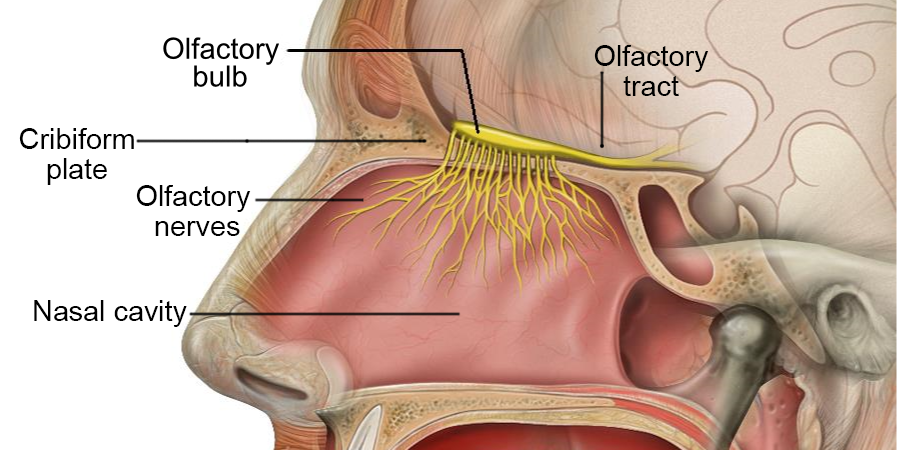
Educational, Odor Control, Simple Science
The (not so simple) Science of Smell: Why Certain Scents Smell Clean
“If a picture is worth a thousand words, a scent is worth a thousand pictures.” -Joel Bellenson
Mmmm, what does that smell remind you of?
The most dismissed of our five senses – our sense of smell – is getting a closer look by science and industry as new research suggests that human olfactory capabilities are quite sophisticated. Recent studies have calculated that humans can distinguish a trillion different odors (1,000,000,000,000) making smell the front runner of the senses when it comes to processing different stimuli. Researchers are continuing to explore the connection between our sense of smell and memory, and how that relationship impacts exactly what “clean” smells like to each of us.
| FUN FACT: The U.S. Department of Defense realized the value of unpleasant smells; stink bombs can cause unruly crowds to disperse in a flash. |
How Smell Works
Our sense of smell is complicated. Here’s a simplified version of what we know happens when we detect a smell…
As air is first brought into the nose by sniffing or inhaling when we breathe. It makes its way across the membranes of our nasal cavity, depositing tiny scent molecules. These molecules pass across a patch of 10 million cells located there and attach themselves to a corresponding receptor (a sensitive protein). There are 400 varieties of receptors, each able to detect only one type of smell. Essentially, a scent molecule must be “found” by a corresponding receptor before it can be perceived as a smell.
Once a scent is detected, a signal is sent to the bundle of nerves located on the bottom of our brain known as the olfactory bulb. It is believed that this area functions as a kind of filter, bringing information to the brain and also sorting sensations into perceptions. The olfactory bulb is part of the limbic system, or the “emotional brain,” since it houses structures vital to behavior, mood and long-term memory. Here, the brain works to identify and make sense of the scent signal, forming an overall experience. The brain “detects the signals sent to it and synthesizes them into an experience.”1
The Nose Knows
The connection between memory and emotion makes smell unique from our other senses. No doubt you’ve caught a whiff of something and instantly been transported to another place or time from your past. As children, our brains begin forming links between new smells and an event, person or thing associated with the scent. That’s why you may smell crayons and be reminded of kindergarten, or detect a certain perfume and immediately think of your grandmother, or catch a whiff of bleach and be transported back to your childhood home and mom cleaning. This connection of smells to individual memories is one reason why not everyone enjoys the same smells.
Because of the strong connection smells have on our psyche, science is devoting more research to the impact they have on behavior and well-being. While pleasant smells have been shown to influence positive behavior—even making people more virtuous in some cases—unpleasant odors can have the opposite effect, making people act more aggressively.
| Fun Fact: “Anosmia” is the inability to smell. A person with this condition cannot perceive odor ad can barely perceive taste. |
The Smell of Clean
Depending on your memories, you may or may not enjoy the smell of bleach or associate it with clean. Chemical manufacturers now have a better understanding of the link between smell and emotion, and use this information when developing new product scents. Many are working to create cleaning products that help convey the feeling of ‘clean’ to the widest audience possible.
Products that evoke the outdoors with floral, fruity scents have been shown to be one of the top choices when the goal is to create an overall effect of cleanliness today. And because smell is often our first response to a stimulus, having an area or facility smell pleasing and sanitary is one of the best ways to make a positive impression on visitors. For example, the new tropical breeze scent of MARVALOSA Multi-Purpose Cleaner & Deodorizer was designed to smell fresh while still offering professional cleaning power.
It’s fascinating to think of the many ways scents impacts us throughout our lives, shaping our brains and forming our experiences. Although there is still much we do not know about this most primal of senses, what science is discovering is enlightening. Let’s celebrate our sense of smell and the many ways it influences us throughout our day and life.
| Fun Fact: Smart phone manufacturers are developing phones that can electronically detect smells. From detecting spoiled food to smelling smoke, your phone could one day save your life. |
1 https://thefifthsense.i-d.co/en_gb/article/the-science-of-smell/

